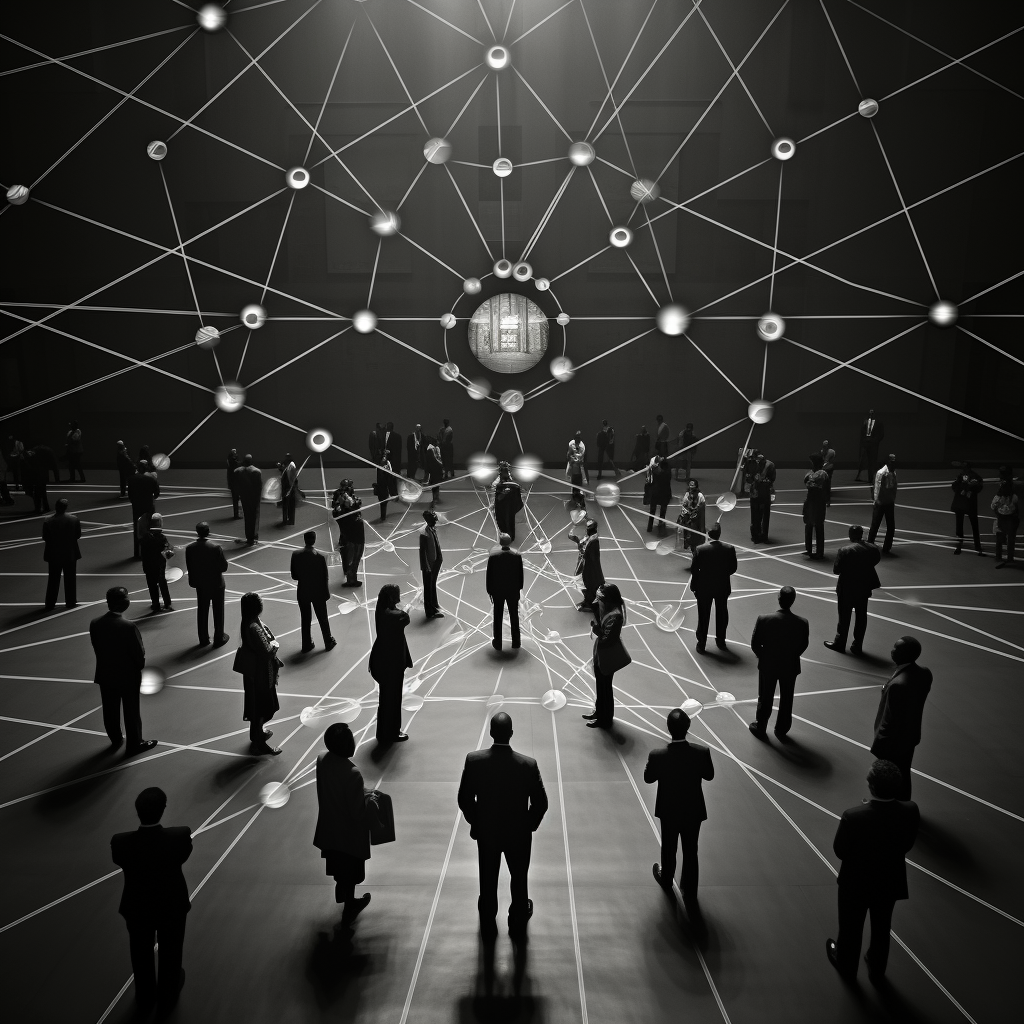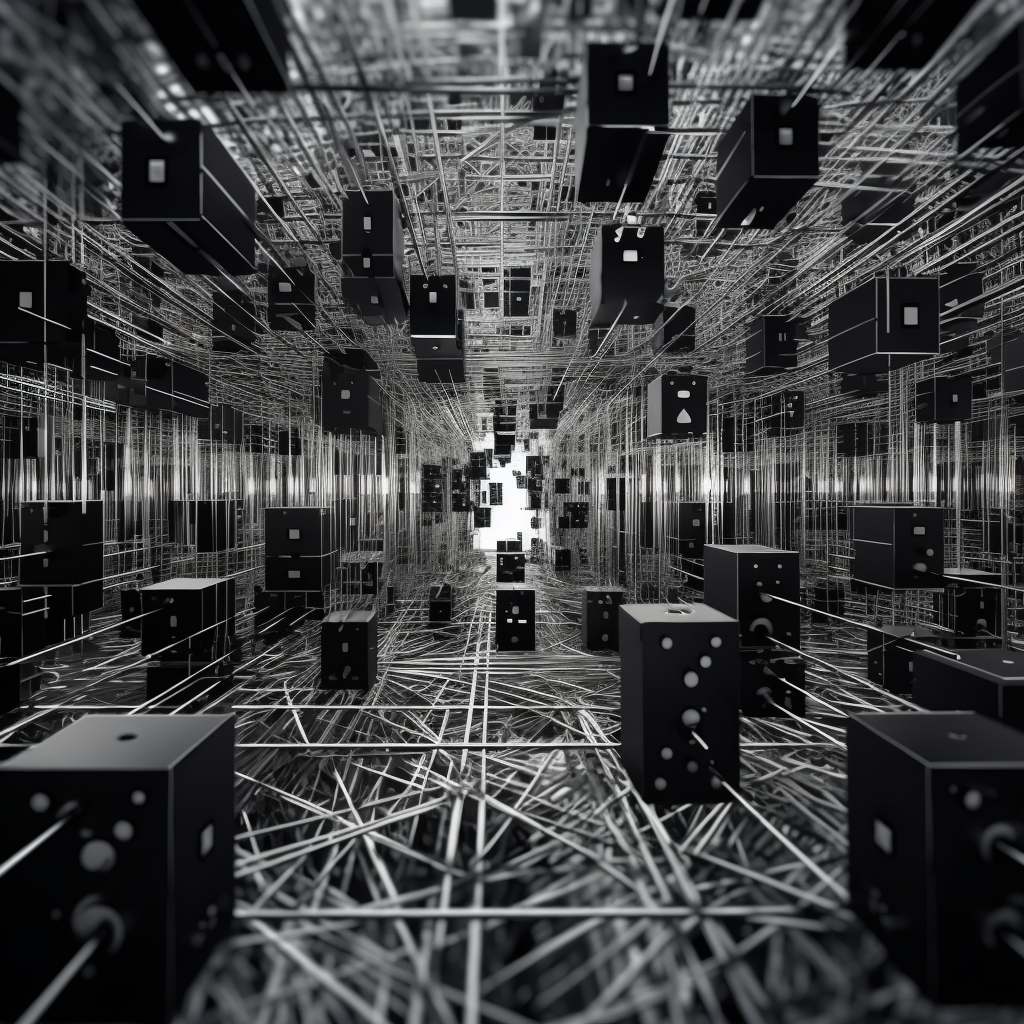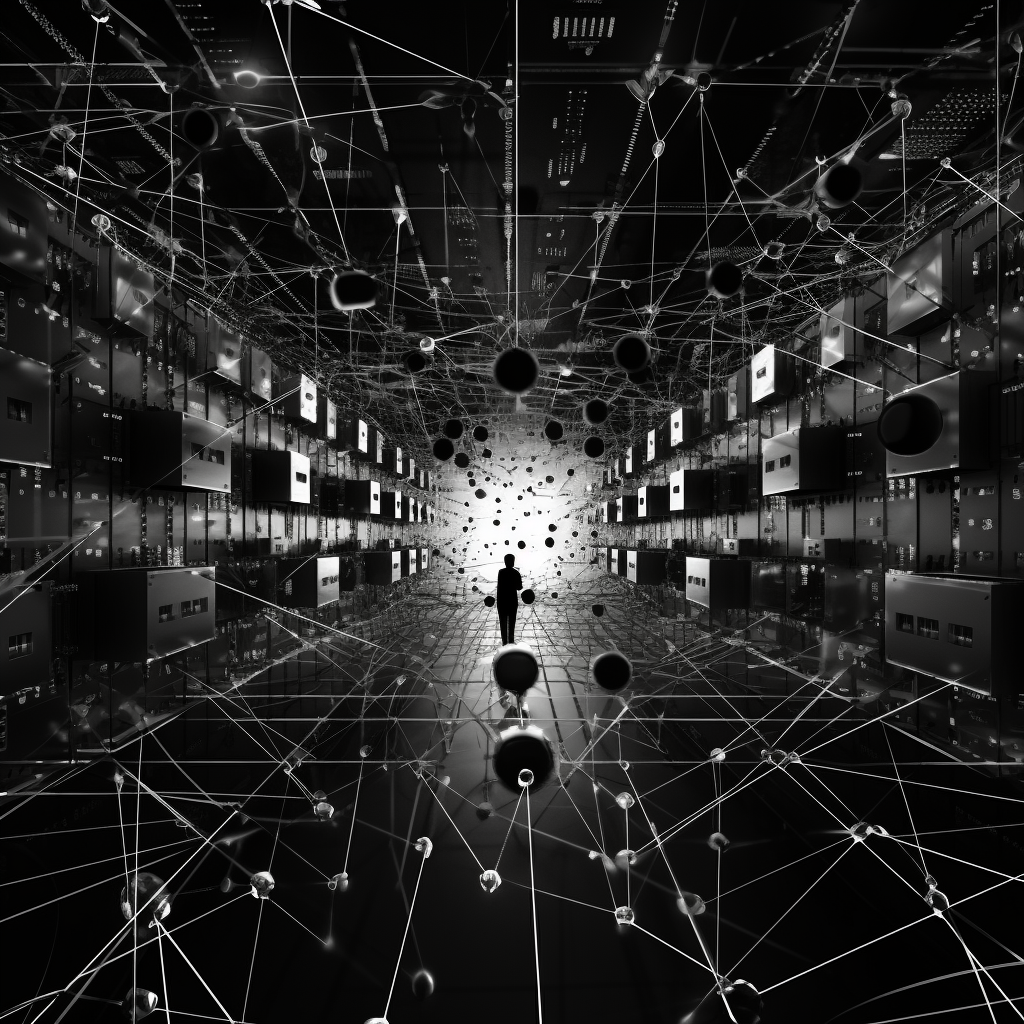What is Decentralization?
Decentralization is a concept rooted in distributing power, ownership, and function away from a central point, emphasizing more inclusive and balanced participation by stakeholders.

Organizational Decentralization
Organizational decentralization pertains to businesses and institutions where the traditional top-down hierarchical model is replaced, or complemented, by more evenly distributed models of governance and ownership. The decentralized model can empower employees, encourage innovation, and allow for more tailored responses to local challenges (Daft, 2015). Organizational decentralization offers a path to equitable ownership and governance for workers whose power and opportunities are currently limited by predominantly corporate structures. Emerging technologies present certain types of organizations with tools and systems to challenge corporate competitors (Spelliscy et al, 2023).
An example of organizational decentralization is the transition from a corporation to a cooperative, in which an organization is owned and governed by its users, rather than its shareholders. Efforts like these are built into the history of American enterprise. At the beginning of the 20th century, more than 2,600 consumer co-ops sprung up in the United States largely to fight the unfair practices of private and company stores, and co-ops continue this practice today (Spelliscy et al, 2023). They include some of America’s (and the world’s) best-known businesses like REI, Ocean Spray, Associated Press, Pedernales Electrical Cooperative, Tri-State, Sunkist, and Dairy Farmers of America.
Technological Decentralization
Technological decentralization pertains to the design and operation of technical systems where functionalities, data storage, and decision-making processes are distributed across multiple nodes or entities, rather than being concentrated in a single centralized point. This approach, rooted in a foundational desire to reduce single points of failure, increases security, resilience, and redundancy. By spreading out the components of a system, it becomes more difficult for any single disruption to incapacitate the entire network, leading to more robust and reliable systems.
In the digital era, technological decentralization is prominently showcased in open-sourced protocols, including blockchain and peer-to-peer networks. Blockchain, for instance, operates on a distributed ledger system where every transaction is recorded across numerous nodes, encouraging transparency, security, and data immutability. Peer-to-peer networks, on the other hand, allow direct data sharing between participants without the need for a central server, optimizing data transfer speeds and reducing dependencies on centralized entities. Both exemplify how technological decentralization reshapes the way we think about and design digital systems.
If you want to fund our work, please reach out to info@daocollective.xyz.


Decentralization Today
The advent of sophisticated technology, particularly in the realms of blockchain, distributed ledgers, and peer-to-peer networks, has revitalized the concept of decentralization, giving it unprecedented potential. Decentralized technologies enable a future where control can be wrested away from central entities, allowing for more equitable participation, heightened security, and increased transparency. Below are two examples of the application of decentralization
Decentralization and social media
Major social media companies, often lauded as democratizing platforms that give a voice to the masses, are paradoxically controlled by one or just a few individuals. Mark Zuckerberg’s control at Facebook (now Meta Platforms, Inc.) and Elon Musk’s control at Twitter (now X) exemplify this concentration of power. Internally, the governance systems and incentives of these organizations are incompatible with the democratic societies they cater to, as highlighted by Meta’s previous attempt at providing users with decision-making power on its platform (Kelly, 2012). These companies have privatized the public sphere, replacing democratic forums with centralized, algorithmic governance (“How Big Tech,” 2021), or worse, the whims of billionaire owners like Elon Musk (Durrani, 2023).
Tellingly, Jack Dorsey, founder of Twitter, has recently lamented that his biggest regret was Twitter becoming a company rather than a decentralized protocol (Nover, 2022). He believes that the platform’s centralized nature has posed challenges, particularly in content moderation, and that the platform has the potential to unintentionally favor or suppress certain voices or narratives. Dorsey has now launched BlueSky, essentially a decentralized version of X, where he envisions content policies, algorithms, and moderation that will be driven collaboratively by its users, rather than by a central corporate authority.
For further reading, we co-authored a paper and co-hosted a summit with the Harvard Kennedy School of Public Policy on this subject:
Decentralization and identity
Democracies rely upon the integrity of the relationship between the voter and the state. Today, AI systems have the potential to severely undermine that relationship by eroding the trust we have in our digital information commons. Without robust identity systems that help us to maintain trust by accurately and safely determining who is human online, AI will increasingly be able to adversely influence our political systems through compelling impersonations and disinformation campaigns. Current digital identity systems are neither resilient nor adaptive enough to respond to these issues.
Digital identity verification systems would help us differentiate between humans and AI, and efforts to improve and integrate these systems into our interactions with the digital sphere will help protect our democratic systems from AI-generated harm. However, if those identity systems are centralized rather than decentralized, there is a greater chance they could be used by malicious actors to destabilize a democracy, rather than to help preserve it.
For further reading, we co-authored a paper on this subject entitled “AI and Democracy’s Digital Identity Crisis.”
